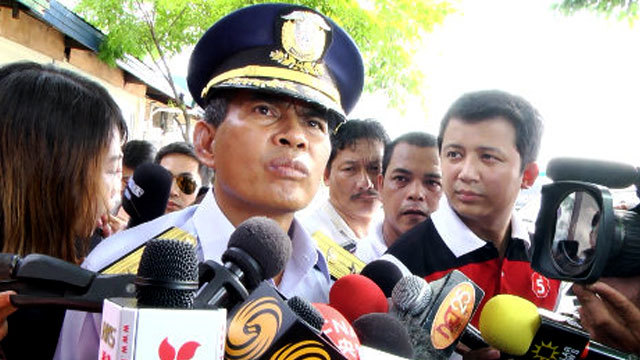Retired Commodore Eduardo Gongona is chosen to lead the Bureau of Fisheries and Aquatic Resources to strengthen the enforcement capability of the agency

File photo of former Philippine Coast Guard Commander Eduardo Gongona
A former Philippine Coast Guard commander will head the Bureau of Fisheries and Aquatic Resources (BFAR) under the Duterte administration.
BFAR announced in a press statement on Wednesday, June 29, that retired Commodore Eduardo Gongona will be its new director.
Gongona, who hails from General Santos City, will automatically serve as agriculture undersecretary for fisheries. BFAR is an attached agency of the Department of Agriculture.
Incoming agriculture secretary Manny Piñol had earlier said he had recommended Gongona to President-elect Rodrigo Duterte.
Piñol said he chose Gongona because he wanted the bureau to focus on law enforcement.
"I believe our law [on fisheries] is sufficient. What we need right now is enforcement over illegal fishing, poaching, the violation of moratorium on fishing, pollution in the coastal areas," said Piñol on Monday, June 27.
The country's Fisheries Code, for example, was amended only in September 2015 to comply with international standards on curbing illegal fishing.
One of the thrusts of BFAR and the DA as a whole, said Piñol, would be the involvement of fishing and agricultural communities.
BFAR's first program, he said, will be a competition among coastal communities that follow sustainable practices and government laws on the fisheries sector.
"The criteria would include the absence of illegal fishing, clean waters, a viable and sustainable mangrove rehabilitation replanting, the presence of a designated marine sanctuary, and observance of the fishing moratorium every year," said Piñol.
He is gunning for a P10-million award for the winning community.
Gongona will be instructed to strictly enforce the fishing moratorium in select areas around the country. But the moratorium, meant to allow fish populations to regenerate, will be done on a rotational-basis.
"We don't do it simultaneously because our fishermen will suffer. It should be in select areas and rotating. And we will have livelihood projects for the fisherfolk during the period when we implement the moratorium on fishing," said Piñol.

No comments:
Post a Comment
Note: Only a member of this blog may post a comment.